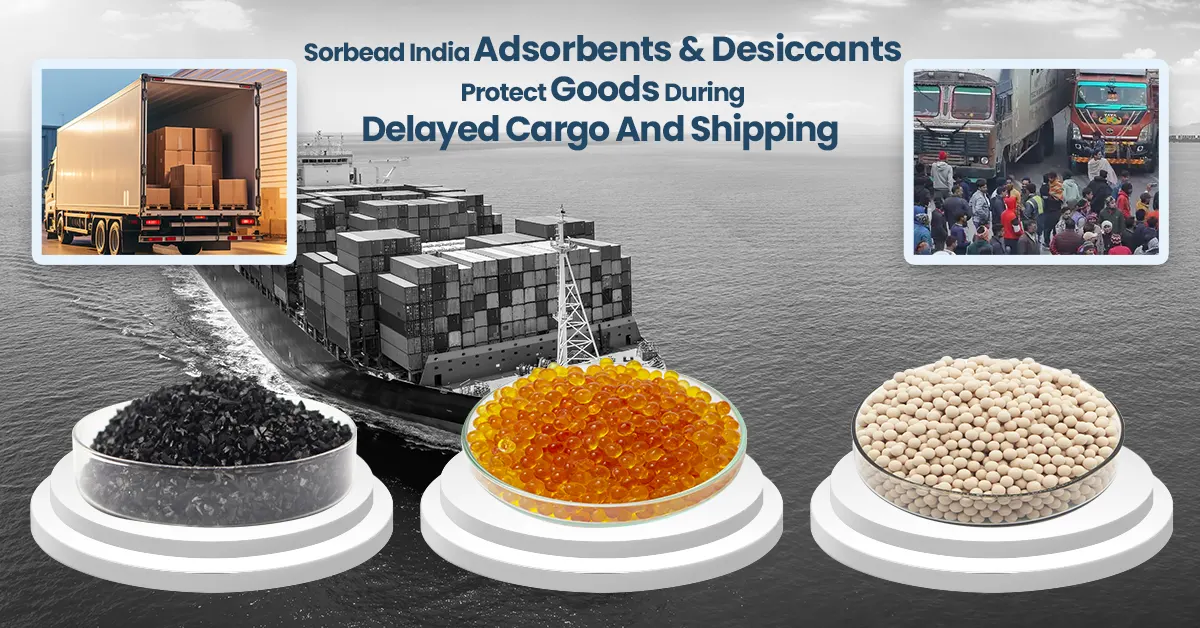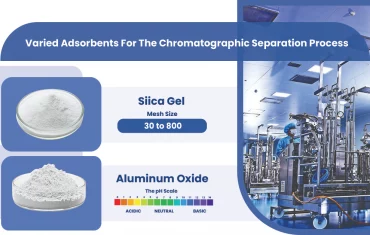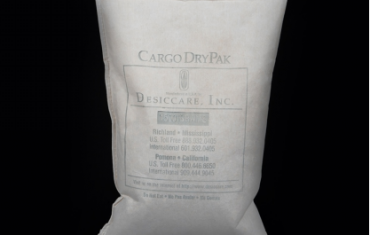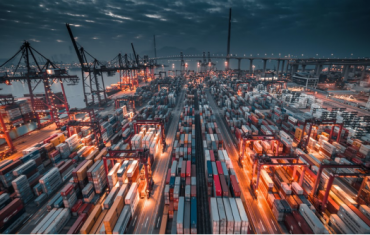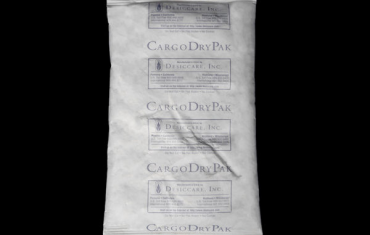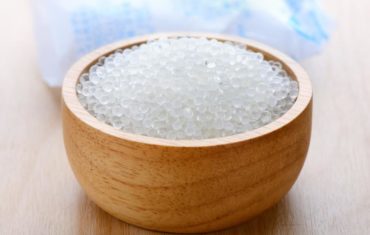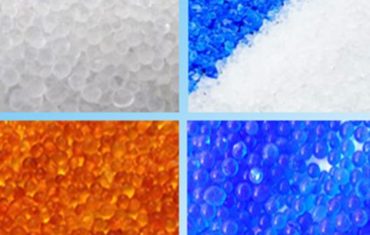Protect Goods During Delayed Cargo And Shipping
Adsorbents and desiccants play a crucial and essential role in safeguarding various products during long-duration cargo shipments and unexpected delays. They contain high-quality substances, such as silica gel, activated carbon, Zeolites, standardized molecular sieves, and calcium chloride, which help control moisture and other potentially damaging substances in shipping containers, ensuring that the products maintain their quality and integrity during transit.
Pharmaceutical products are highly susceptible to varying environmental factors, particularly moisture, which can compromise their efficacy and safety, especially during long durations of transit or during unexpected delays and issues such as the Truckers strike and Red Sea crossing crisis. These delays can expose the products to high amounts of moisture and humidity, which can have detrimental effects on their quality and stability.
How adsorbents and desiccants prevent moisture-related damage during long transits?
Adsorbents can be used in a variety of ways to protect various products during shipping and long transits. They can be placed inside the packaging or shipping container, or they can be used in the form of packets or sachets that are placed alongside the products. It’s important to choose the right type and amount of adsorbent or desiccant for your specific shipping needs to ensure maximum effectiveness.
Moisture during shipment can cause a variety of issues, including warping, spoiling, rusting, and the growth of mold and mildew. Desiccants function by attracting moisture to their surface through a process called adsorption, which keeps the surrounding air dry. Desiccants provide the ideal amount of absorption and shield against damage from container rain by actively drawing moisture from the surrounding air to lower the dew point, leaving the air dry to optimum levels.
Adsorbents such as silica gel, activated carbon, and molecular sieves work best at attracting and trapping water molecules, vapor, humidity, dust, and contamination. Adsorbents prevent moisture-related damage to pharmaceutical products during transportation, preserving their chemical composition, potency, and overall quality.
They also maintain desired humidity levels in cargo, creating an environment conducive to the stability and efficacy of pharmaceutical products. By using adsorbents you are taking a proactive measure to safeguard pharmaceutical goods during prolonged transits or unexpected delays in shipping.
By using high quality desiccants, companies can minimize the risks associated with moisture damage and VOC accumulation which are very common during long transit times and unprecedented delays due to uncertainty, ensuring that their products reach their destination in optimal condition.
Sorbead India manufactures the best adsorbents and desiccant materials that are sustainable, reusable, non-toxic, inert, and affordable. They provide essential, eco-friendly, strategic packaging solutions and specialized care for your unique product that improves its shelf life and efficiency for longer durations.
Adsorbents and desiccants work by removing moisture from the surrounding environment, preventing issues such as mold growth, corrosion, and product degradation. By making use of these moisture-absorbing agents in the packaging, the products can be stored, packaged, and transported in optimal condition, safeguarding their efficacy and maintaining customer satisfaction.
Some of the advantages of using a desiccant in shipping containers are:
- Moisture protection
- Prevention of growth of mold and mildew
- Maintaining the quality of your perishable goods
However, it’s important to select the correct type and amount of your desiccant according to your shipment’s needs and moisture risks.
Sorbead India has helped save goods worth 100,000,000$ and helped protect and save numerous products across varied industries from damage due to moisture/humidity and other environmental factors, during the recent challenges posed by the Truck drivers’ protest and the Red Sea crisis.

